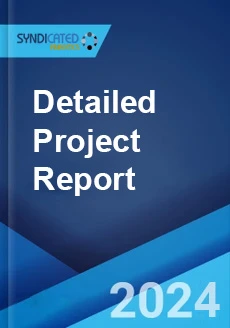
Liquid Analytical Instrument Market: Global Industry Analysis, Market Size, Share, Trends, Application Analysis, Growth and Forecast, 2023-2028
Liquid Analytical Instrument Market: Global Industry Analysis, Market Size, Share, Trends, Application Analysis, Growth and Forecast, 2023-2028” provides a deep and thorough evaluation of the global liquid analytical instruments market. liquid analytical instruments monitor fluid process chemistry, ranging from fundamental probes, including water quality and pH to complex analytics, such as oxidation reduction potential (ORP), percent concentration and suspended solids. Comprising integrated sensors, transmitters, and displays, these instruments are potently designed to resist constant exposure to toxic and corrosive fluids.
The global liquid analytical instrument market is primarily driven by the growing awareness regarding non-compliant waste reduction and effective wastewater management. Also, the emergence of advanced technologies in the pharmaceutical industry to enable easy data monitoring and control is creating a positive outlook for the market. Moreover, continual product innovations and extensive research and development (R&D) activities are further expected to provide a boost the market growth.
Beginning with a global overview, the report explores the dynamics that have a strong influence on the liquid analytical instruments market and can also impact its future growth. Taking 2022 as the base year, the report covers historical market scenario from 2017-2022 and provides forecasts till 2028. This includes the study of value and volume trends and pricing history. Growth inducing factors, market restraints and recent developments have also been analysed in the report in order to provide a deeper knowledge about the industry. On a regional basis, the report examines the liquid analytical instruments market in North America, Europe, Asia-Pacific, Latin America and Middle East & Africa. For each of these regions, the report studies the liquid analytical instruments market in detail for latest trends, outlook and opportunities.
The report analyses the competitive structure of the liquid analytical instruments industry and provides the profiles of major players operating in the market. The price margins for the products along with the various success and risk factors for manufacturers have also been covered in the report. Moreover, in order to determine market attractiveness, the report analyses the liquid analytical instruments industry along the parameters of the Porter’s Five Forces model. This model examines the degree of competition in the liquid analytical instruments industry by analysing the threat posed by new entrants and substitutes, and the bargaining power of suppliers and buyers. SWOT analysis of the market has also been presented in the report which highlights the strengths, weaknesses, opportunities and threats pertaining to the liquid analytical instruments industry. Furthermore, the value chain analysis of the liquid analytical instruments industry has also been covered in the report. This comprises of all the activities in the value chain, such as the procurement of various raw materials, manufacturing, sales and distribution.
Key Segments and Highlights of the Global Liquid Analytical Instrument Market
- Historical and current scenario
- Trends and developments
- Market forecast
- Impact of COVID-19
- Price analysis and forecast
- Porter’s five forces analysis
- SWOT analysis
- Value chain analysis
- Market Breakup by Type
- Market Breakup by End-Use
- Market Breakup by Region
- North America
- Europe
- Asia-Pacific
- Latin America
- Middle East & Africa
- Key players
The report is a result of exhaustive primary and secondary research undertaken by analysts having years of experience in the liquid analytical instruments industry. All the qualitative and quantitative aspects of the industry have been covered and the collected data has been analysed and presented in the form of easily comprehensible charts, graphs and tables.
Purchase Options
Ask For Customization
Personalize this research
Triangulate with your own data
Get data as per your format and definition
Gain a deeper dive on a specific application, geography, customer or competitor
Any level of personalization
Get in Touch
Call us on
US: +1-213-316-7435
Uk: +44-20-8040-3201
Drop us an email at
sales@syndicatedanalytics.com